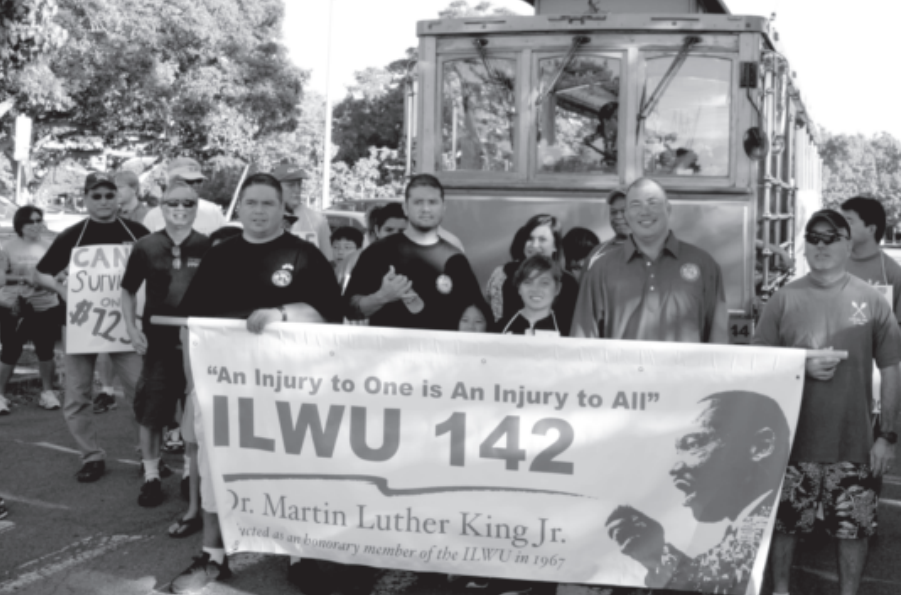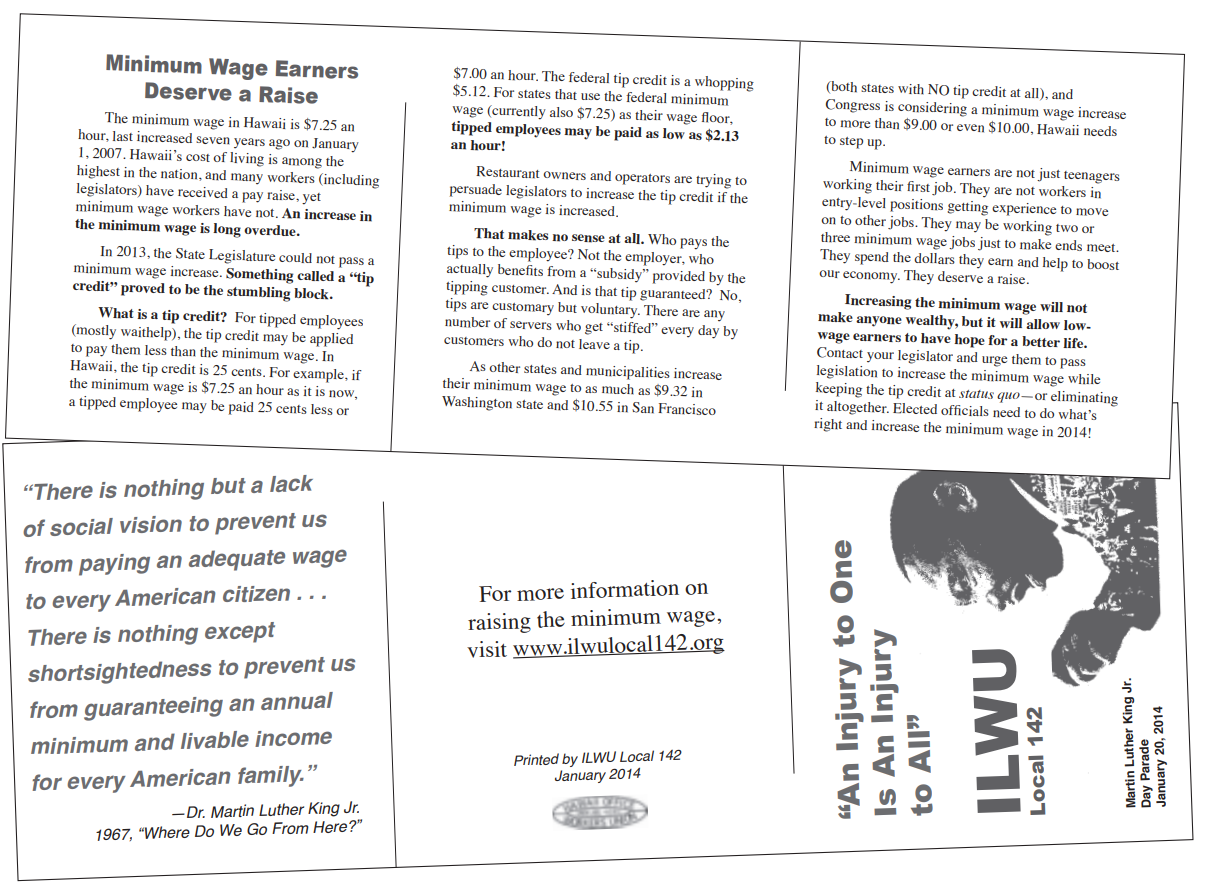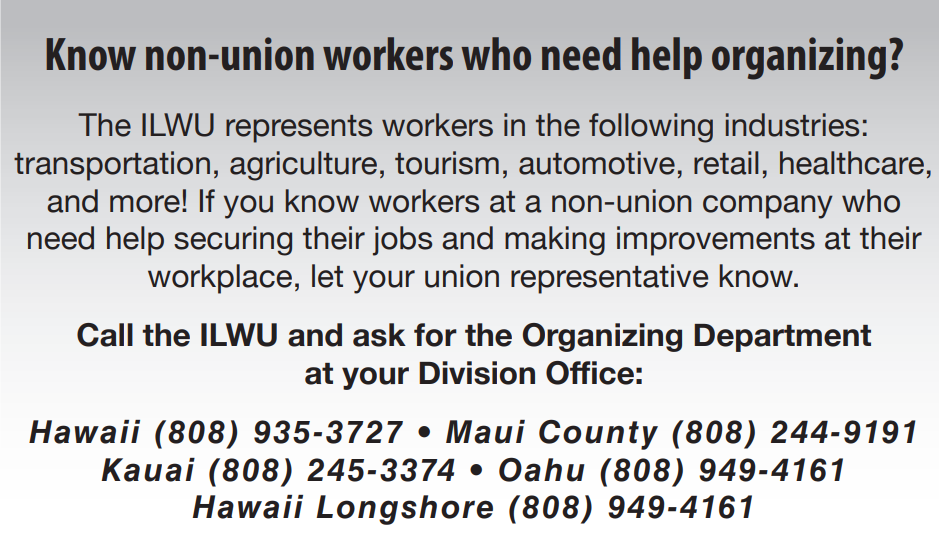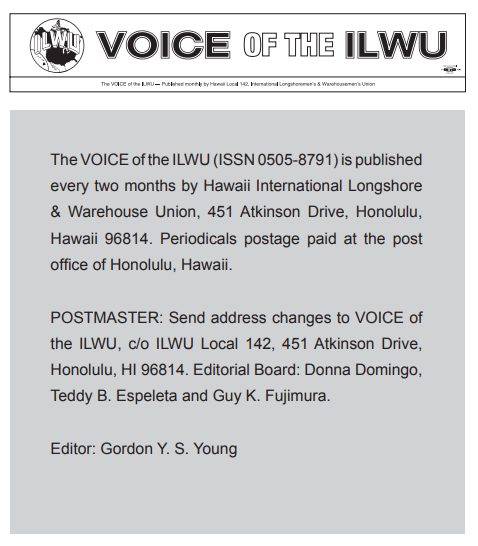
Honolulu celebrated the Martin Luther King Day holiday with a parade through Waikiki and a rally at Kapiolani Park on Monday, January 20, 2014. ILWU Local 142’s Oahu Division again joined the march, which re-affirms the community’s commitment to social justice. In past years, ILWU participants held signs in support of workers at the Pacific Beach Hotel. This year, they held signs supporting an increase in the minimum wage.
The Division also passed out candy attached to cards explaining why the minimum wage should be raised and why Hawaii’s $.25 “tip credit” should be abolished (see card at right for explanation).
The holiday honors Martin Luther King, Jr., a Baptist minister from Montgomery Alabama, who was one of the leaders of the civil rights movement to end discrimination against AfricanAmericans. In his later years, King spoke against poverty and the U.S. war in Vietnam.
King was assassinated on April 4, 1968 in Memphis Tennessee, where he was supporting the city’s African-American sanitation workers’ union strike for equal treatment. In one reported incident, black street repairman received two hours of pay when they were sent home because of bad weather, but white workers were paid for the full day. King was a strong supporter of unions and their goal of creating a better life for working people.
Martin Luther King spoke of the shared goals of the civil rights and labor movements, noting in his December 11, 1961 address to the fourth AFL-CIO national convention that both AfricanAmericans and union members were fighting for “decent wages, fair working conditions, livable housing, old age security, health and welfare measures, conditions in which families can grow, have education for their children, and respect in the community.”
King was named an honorary member of the ILWU in 1967 because of his efforts on behalf of working families and the labor movement. In a speech to the state convention of the Illinois AFL-CIO in 1965, he said, “The labor movement was the principal force that transformed misery and despair into hope and progress. Out of its bold struggles, economic and social reform gave birth to unemployment insurance, old age pensions, government relief for the destitute and, above all, new wage levels that meant not mere survival but a tolerable life. The Captains of industry did not lead this transformation; they resisted it until they were overcome.”



